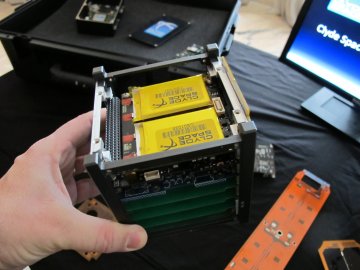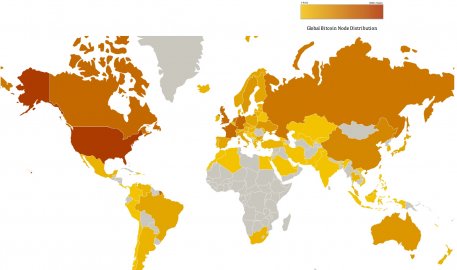Bitcoin wallet nodes
 The main idea behind bitcoin and the reason that it took off is because of bitcoin’s decentralized nature and its peer-to-peer (P2P) network. In order to keep bitcoin running and validate transactions there need to be bitcoin nodes available on the network.
The main idea behind bitcoin and the reason that it took off is because of bitcoin’s decentralized nature and its peer-to-peer (P2P) network. In order to keep bitcoin running and validate transactions there need to be bitcoin nodes available on the network.
Bitcoin nodes are different from bitcoin miners or bitcoin clients. Bitcoin nodes provide security, one of which is security from double spending – when a user attempts to spend the same coin twice. chooses random nodes and then has them verify the transaction and make sure the coins were not double spent.
chooses random nodes and then has them verify the transaction and make sure the coins were not double spent.
Bitcoin not only needs nodes, it requires many functioning ones – nodes that have the bitcoin core client. Anybody can run a bitcoin node as long as you have access to a high quality server. You will need atleast 2GB of RAM and atleast 20GB of storage in order to be able to run the bitcoin client.
 This following excerpt is taken from THIS article which is a tutorial on how to install coinpunk, an open source front-end bitcoin wallet on Centos 6.5.
This following excerpt is taken from THIS article which is a tutorial on how to install coinpunk, an open source front-end bitcoin wallet on Centos 6.5.
The first thing you must do on CentOS 6.5 is install bitcoind.
wgetnow we will untar the tarball and start installing dependencies.
tar -zxf watchonly.tar.gz cd bitcoin-watchonlyyum install git-corefirst we update yum and make sure your original deps are up to date:
yum updateWe will need to install some dependencies from source so lets get to it, create a working directory and start compiling
Berkeley DB 4.8.30
wget zxvf db-4.8.30.tar.gz cd db-4.8.30/build_unix ../dist/configure --prefix=/home/bitcoind/bitcoind/deps --enable-cxx make && make installOpenSSL
wget zxvf openssl-1.0.1g.tar.gz cd openssl-1.0.1g ./config --prefix=/home/bitcoind/bitcoind/deps --openssldir=/home/bitcoind/bitcoind/deps/openssl -fPIC shared make && make installBoost






